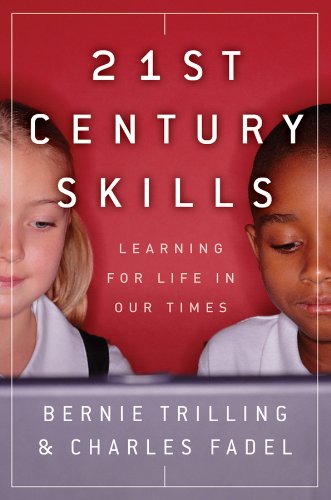We may earn a commission if you click on a product link and make a purchase at no additional cost to you. For more information, please see our disclosure policy.
Last Updated on June 17, 2025
Key Takeaways
- Transferable
skills matter: Manyskills from other industries, such as communication,time management , andleadership , can directly support a successful transition to nursing. - Empathy is non-negotiable: Compassion and emotional intelligence are core to patient care and should be cultivated through mindful, human-centered interactions.
- Technology is part of the job: Nurses must be comfortable with healthcare tech, from digital records to patient-monitoring systems and evolving clinical tools.
- Flexibility boosts success: The unpredictable nature of healthcare demands adaptability in both mindset and daily responsibilities to thrive in nursing roles.
- Continuous learning is vital: Nursing requires ongoing education to stay current with best practices, treatment protocols, and patient care standards.
In today’s job market, it’s easier than ever to switch careers or explore new professional avenues, allowing individuals more freedom and opportunities to pursue different paths. Nursing, for one, stands out as a field that offers both personal fulfillment and professional growth. With the healthcare industry continually evolving and the demand for skilled nurses increasing, transitioning into a
This article explores essential
Communication Skills
Communication is the foundation of quality nursing care. It goes beyond relaying information—it’s about listening actively, building trust, and ensuring clear understanding among patients, families, and healthcare teams. If you’re transitioning from careers in
Explore helpful strategies in this guide for aspiring educators, which also applies to health communication principles.
115 Techniques to Connect With People by Mastering the Power of Words. Build Better Relationships by Conveying Your Message With Skill, Clarity, and Eloquence
Empathy and Compassion
Empathy and compassion are central to practical nursing. These traits help build meaningful connections with patients and offer emotional support during vulnerable moments. If you’ve worked in social work, counseling, or other emotionally driven fields, these qualities are already familiar to you. But empathy isn’t limited to specific professions—anyone can develop it. Through reflective practice, mindfulness, and intentional interactions, you can deepen your understanding of others and provide patient-centered care that fosters trust and healing.
For more insight into career shifts into healthcare, visit this resource on switching to nursing.
Time Management and Organization
Nursing is a fast-paced profession where time-sensitive decisions and multitasking are part of everyday work. Strong organizational
- Prioritize tasks efficiently: Learn to assess patient needs and address the most urgent cases first.
- Use tools to stay organized: Digital schedules and patient record systems help track appointments and procedures.
- Prepare for shift transitions:
Organize reports and updates to ensure smooth handovers between teams. - Reduce distractions: Stay focused during critical tasks to maintain safety and accuracy in care delivery.
Those from a project-based background may benefit from this self-paced PMP® course. And to support personal
Become focused, organized, and calm with Todoist. The world’s #1 task manager and to-do list app. Todoist is the personal and team task manager used by over 25 million people to keep track of everything from work projects to birthday reminders.
Critical Thinking and Problem Solving
Nursing requires rapid, informed decisions that directly impact patient outcomes. Whether assessing symptoms, responding to emergencies, or creating care plans,
Physical Stamina and Endurance
Nursing is physically demanding, requiring long shifts, frequent movement, and hands-on patient care. From lifting patients to standing for extended periods, stamina plays a critical role in maintaining energy and preventing injury. If you’ve worked in physically active jobs—like athletics, warehouse work, or personal
For nurses seeking flexible career options, see this guide on work-from-home opportunities for nurses.
Have you ever thought about becoming a registered nurse but were unsure if a career in nursing is good for you? Do you want to become a registered nurse but are not sure if you have what it takes?
Technological Proficiency
Technology plays an increasingly vital role in modern healthcare. From electronic health records to digital monitoring devices, nurses must be comfortable with a variety of tools that support patient care and clinical efficiency. Those with backgrounds in tech-driven fields already possess a key advantage. However, even without a tech background, nurses can build confidence through structured learning and consistent exposure to clinical systems. Familiarity with these tools enhances both speed and accuracy in documentation, communication, and treatment planning.
- Electronic Health Records (EHR): Learn to navigate patient records and input data efficiently using hospital-approved software.
- Medical equipment: Learn how to operate standard tools, such as IV pumps, heart monitors, and vital sign machines.
- Telehealth platforms: Develop the ability to support remote care and digital consultations when needed.
- Ongoing digital literacy: Stay up to date through online courses and software
training programs relevant to the healthcare industry.
To explore how healthcare technology is transforming patient care, check out this overview of healthcare tech advancements.
This guide, tailored specifically for aspiring pediatric nurses, is your roadmap to success. It ensures you're fully prepared to pass the CPN exam with flying colors.
Attention to Detail
In nursing, small mistakes can have serious consequences. Whether it’s double-checking medication dosages, accurately documenting vitals, or noticing subtle changes in a patient’s condition, attention to detail is crucial for patient safety. Professionals from fields such as finance, laboratory work, or data analysis often excel in this area. For those new to detail-oriented roles, this skill can be sharpened through practice, structured routines, and feedback from experienced mentors, ensuring that high standards of care are consistently met.
Leadership and Teamwork
Nursing is rarely a solo role. Whether guiding junior staff, advocating for patients, or collaborating across departments, nurses must balance
Become focused, organized, and calm with Todoist. The world’s #1 task manager and to-do list app. Todoist is the personal and team task manager used by over 25 million people to keep track of everything from work projects to birthday reminders.
Unlearning and Learning As a Continuous Process
Nursing is a constantly evolving profession. With medical knowledge, treatments, and technology constantly evolving, continuous learning is crucial for staying current and relevant. Equally important is the ability to unlearn outdated practices that may no longer serve patients safely. Those from industries that emphasize professional development—like education, finance, or tech—are often well-prepared for this mindset. In nursing, growth means seeking out workshops, certifications, and peer learning opportunities to stay sharp and provide the best care possible.
21st Century Skills: Learning for Life in Our Times explores the essential skills needed to thrive in today’s dynamic, technology-driven, and global economy.
Next Steps
- Assess your current skill set: Identify which of your existing
skills align with nursing and where you may need additionaltraining or certification. - Explore accredited nursing programs: Research flexible, reputable programs that offer the right path for your background—LPN, RN, or accelerated BSN options.
- Gain real-world exposure: Volunteer at clinics, shadow nurses, or work in healthcare-adjacent roles to build experience and validate your career choice.
- Strengthen your emotional resilience: Develop stress-management techniques, such as mindfulness or journaling, to prepare for emotionally demanding situations in healthcare settings.
- Plan financially for the transition: budget for tuition, certification exams, and potential income gaps as you prepare to reenter the workforce in a new field.
This clear and simple guide provides tons of practical advice for keeping track of your finances. With useful tips on setting financial goals, reducing debt, finding ways to save money, and creating and following a budget plan, you’ll have your dollars and cents under control in no time.
Final Words
Changing careers is never easy, but transitioning into nursing offers both purpose and potential for growth. With the right mindset and preparation, you can leverage your existing strengths and adapt to the demands of this essential field. By investing in yourself through education, exposure, and personal growth, you’ll be well-positioned to thrive in a role that truly makes a difference in people’s lives. Whether you’re drawn to caregiving or long for a meaningful profession, nursing can offer the fresh start you’ve been seeking.
Have you ever thought about becoming a registered nurse, but were unsure if a career in nursing is good for you? Do you want to become a registered nurse, but are not sure if you have what it takes? Are you not 100% sure about how to become a registered nurse?
Related posts:
Mark Fiebert is a former finance executive who hired and managed dozens of professionals during his 30-plus-year career. He now shares expert job search, resume, and career advice on CareerAlley.com.












